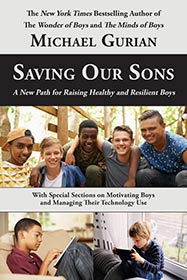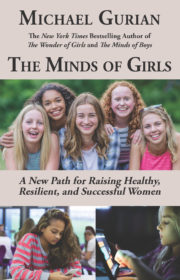My daughter, Davita, 24, is an avid and accomplished rock climber. She and her boyfriend, Ben, go on two to three month climbing trips around the country every year. They “send” their routes and “redpoint” their projects and otherwise master boulders and cliff-faces as much as a human being can. Davita’s calling—and her older sister, Gabrielle’s interest in climbing a few years earlier in the family chronology–has recently spilled over to my wife, Gail, who now boulders and rope climbs two to three times a week at our local climbing facility.
The love these women have for climbing intersected recently with my own studies of gender in three specific ways. In the first, Davita sent me a blog about “mansplaining in climbing” on the same day the wonderful new action movie, “Wonder Woman,” came out (more on the movie in a moment). You can read the blog Davita sent here:
https://itsajurg.wordpress.com/2017/06/04/mansplaining-in-climbing/.
“Mansplaining” represents a feeling women have of being talked to by men in a patronizing way. The blogger gives examples of what she considers significant sexism in the climbing world via men condescendingly criticizing women’s technique.
Davita has written on gender-in-climbing for professional websites and we enjoy discussing how gender politics and gender differences intersect with all worlds, including her climbing world. After I read the blog post, she said, “I respect this writer’s perspective, but Dad, this is not how I see climbing.” She continued, “Even the examples she gives don’t seem dangerous to me. I think she’s taking everything way too personally but blaming men.” I heard Davita talking about the same “gender micro-aggressions” movement we see throughout our universities, schools, corporations and public culture today: portrayals of ostensible evil motives (mainly by males) without actual crimes by these males.
When I asked Davita if she thought there was rampant sexism in climbing, she frowned and shook her head. “No. Some guys are mean or immature and some women are nasty or immature but climbing as a sport is pretty gender equal. It is also very difficult sport and difficult as a way of life—being criticized comes with the territory because the goal is to keep getting better at your craft.”
If you haven’t read the blog post yet, I hope you’ll take a moment to do so. While making some important points, it seems, to me, to depict a villain-victim relationship that systematically disempowers women yet I agree with Davita: the author seems to both depict women as too fragile to handle men’s criticism and also as people who are entitled to special treatment.
I thought about all this as I left a preview of the movie “Wonder Woman,” a female-directed and female-empowering movie I highly recommend for anyone who likes a good action movie, and especially to anyone raising daughters. In it, Diana, an Amazon, is raised by all women warriors. She yearns not for less critique but more because she knows: to criticize is to respect rather than to harm–if a person is not being criticized and led, through that critique, to greatness, she has little worth.
Diana’s warrior aunt, Antiope says as much: early in the film, she tells Diana’s mother that the only way to protect her niece is to train her through rigor and danger that makes Diana constantly uncomfortable. Her mother, as Diana gets closer to adulthood, finally agrees, and Diana goes into this difficult training wherein, as a young woman, she develops resilience and confidence and, later, outperforms everyone AND saves the world!
You can imagine my thoughts as I juxtaposed the blog on mansplaining with this movie. To me a father of well-empowered daughters, the Wonder Woman vision of expanded and resilient womanhood, rife with love, truth, critique, rigor, mission, purpose, and personal growth, was preferable to complaints of interpersonal discomforts in which malice does not exist. As I left the theater I went home to begin this blog then Gail came home for dinner. We ate together and I listened to her talk about her climbing lesson earlier that morning. As she reported routes and projects, I mentioned the movie and the blog. She had not yet read the blog but had knew what “mansplaining” was.
As we talked, she discussed her climbing coach, a young man in his late 20s, Nick. “I think some people might interpret Nick’s coaching as mansplaining,” she reflected, “especially when he critiques my technique or focus; let’s face it, he is direct, harsh and sometimes stern. There’s no pleasantry about it. But his approach motivates and challenges me, he inspires me to try harder and reach further than I believe I can.”
We talked a bit more about this and then she wanted to read the whole blog post so I cleaned up from dinner as she read, thinking about her talk of harshness. All through my marriage to Gail—31 years—and my daughters’ upbringings, I’ve heard: “Dad, your tone is so harsh!” “Dad, you don’t have to be so loud. I get it.” “Mike, I get it! You don’t have to be harsh about it.” My family has been right on all counts: my comments can often be too critical and I am tone-deaf to the harshness of my loud tone, especially to women’s ears.
Is that sexist? I don’t think so. It fits the brain research. The female brain does pick up more subtle criticism in voices than the male brain tends to do. Male biochemistry is already linked with harsher, more competitive, and more physically painful self-expressions via our testosterone dominance, and male auditory cortices don’t, on average, hear as much or as well as female, so males do often tend to sound louder and harsher than females. Add to that how a child is nurtured early on—some kids raised with more and louder criticism by parents and caregivers, you can end up with more males like me and Nick than females.
Gail finished reading the blog post and I came back to the table. She said, “I guess everyone would rather hear nice words spoken in nice ways, but I’m glad Nick is the way he is. It makes me a better student and climber.”
“Do you think he’s being sexist?” I asked.
“Not at all.” She pointed to the blog post. “This seems pretty off base to me. I don’t see Nick as mansplaining or talking down to me in a sexist way. He’s just talking in a guy way. It’s not condescending to my gender. In fact, he’s respectful in his male way of my efforts.” Pointing again to the blog post, she said, “I think this writer is sensitive, fragile.” That had been Davita’s comment as well.
I don’t know the writer—she might not be very fragile at all—but the takeaway of all this might be that there is some significant disagreement among empowered women on what “strength” means. In our family of very strong women, a man’s tone doesn’t figure much into a woman’s character or being. For us (as, I believe, for Wonder Woman), “mansplaining” accusations seem yet another way to disempower girls from developing their own resilience by attacking males for trying to help them build that resilience.
In the ten years in which I provided gender training to Fortune 500 corporations (which I’ve reported in Leadership and the Sexes, 2007), one of the major complaints of both women and men was the fact that there are a lot of women in those workplaces who “take things too personally.” This created many dramas that hindered morale and workplace productivity. Tones of voice—often by males but not always—were considered “attacking” or “devaluing.” Sometimes they were so, but much of the time they were simply critical, even harshly so, but not systemically sexist.
I will keep working on quieting down my tone, especially with the women in my life. Meanwhile, I hope our community conversations will look carefully at the possibility that feeling entitled to complain about the other gender’s approaches to resilience-building is not necessarily strong or resilient. A lot of “gender micro aggressions” like “mansplaining” may actually be gifts not oppression: gifts that instill “discomfort” of the kind Diana, in Wonder Woman, welcomed in her journey to and through resilience.
When someone is sexist, let’s take the sexist person to task. But while making our judgments about sexism, let’s teach everyone around us—children and adults—what real malice is. Protection against malice is crucial to survival and thriving. Accusations of malice when only motivational critique are intended is a step backward in human development—not a gift to our daughters.










